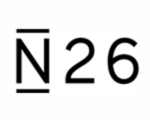Also, setting up automatic payments, e.g. for rent or utilities, is usually more convenient way to manage your finances.
How to open an account
If you stay in France for more then three months, you can open a current account (compte courente) as a 'résident'. This is usually straightforward and free. You will usually need to present the following:
- Your passport
- Your residency permit (titre de séjour or carte de séjour)
- A proof of address (e.g. your telephone bill, electricity/gas bill, rent contract/receipt, etc.) including your name and address.
If you do not have proof of residence or a residence permit, you can open a non-resident account (compte non-résident). In terms of fees and services, non-resident accounts are normally the same as resident ones. The main difference is usually that the bank may not issue a credit card or provide an overdraft.
You can also open a savings account (compte d'épargne), but this will not give you a credit card or overdraft. Some banks will assign you a personal adviser as your link with the bank.
Choosing a Bank
Check with your bank in your home country if there is an associated bank in France, which may simplify some operations. Otherwise, if you do not have particular needs, it is probably better to choose one of the main French banks because of the larger network of their branches. The major banks in France are:
- BNP-Paribas: www.bnpparibas.fr
- Société Générale: www.societegenerale.fr
- Crédit Agricole: www.credit-agricole.fr
- Crédit Mutuel: www.creditmutuel.fr
- Caisse d'Epargne: www.caisse-epargne.fr
- Banque Populaire: https://www.banquepopulaire.fr/
- AXA Banque: www.axa.fr
- ING Direct: www.ingdirect.fr
You can also open a bank account at the Post Office (La Poste, www.labanquepostale.fr ). The main advantage is the network of post offices which means you can access your account from almost every village in France, but you risk spending more time in a waiting line.
Charges (such as making transfers, getting cards and insurance, etc.) tend to be lower for online accounts.
Most banks have special offers for students and young people (usually under 26) to attract new young customers. As you can get lower account costs for for example credit cards, it's worth your time to find out about these offers.
If you have specific needs or are dealing with large transfers and balances, you should negotiate with several banks. Service levels are variable in banks and a lot depends on the individual you are dealing with, so don't hesitate to change branch if you're not getting the service you require.
Banking hours
Standard banking hours are Monday to Friday from 8:30-9:00 to 16:00-17:30. Some banks also extend hours on one day a week, while others (usually small branches) close for the day at 12:00-14:00. Some branches open on Saturdays (usually from 9:00-13:00), but if so they are usually closed on Monday.
Post offices are usually open from Monday to Friday from 8:00 to 18:00-19:00, and on Saturdays between 8:00 and 12:00. An exception is the post office in the Rue du Louvre, Paris which is open 24 hours a day every day.
Standard services
Check the conditions on your account to avoid bad surprises. Even a few days of overdraft (découverts) in a permitted limit can be expensive. Unauthorized overdrafts mean a bank can block your credit card or withdraw your cheque-book. Depending on the bank and your income, there are different overdraft schemes; if necessary, you should negotiate this when opening your account.
Bank statements (relevés de compte) are usually sent monthly. Sometime, you can opt for more frequent statements. Most French banks provide good phone services (e.g. for checking your balance) and internet banking. Access to these services is usually without additional charges.
Credit, debit and cash cards can cost between €15-45/year and will be sent in 1-2 weeks.
Many banks provide other services, such as insurances and mortgages. A common insurance service is a policy which covers you (and often other household members) in case of loss or theft of credit cards, cheques or car/home keys. This can prove to be a worthwhile investment, the cost of replacing the locks on a typically armoured French door can be €200+.
In France, current accounts do not pay interest. You can open different kinds of saving accounts, such as:
- Livret (or properly Compte d'Epargne sur le Livret): general saving account, you can easily transfer money to and from your current account
- LDD (Livret de développement durable): Sustainable Development Booklet. Tax-free interest on a balance up to €12.000. You can easily transfer money to and from your current account. Each individual is only allowed to have only one of these accounts.
- PEL (Plan d'Epargne Logement) or CEP (Compte d'Epargne Logement): long-term saving accounts for buying a home. They have guaranteed interest rates and are government subsidized . It is known for people to use these for purposes other than investment in accommodation.
- Retirement plans



